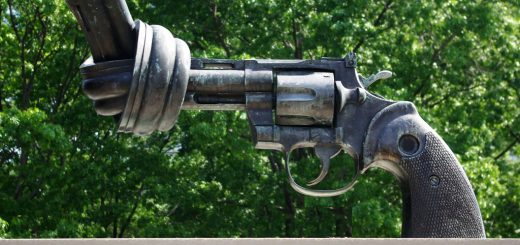Justice Malcolm Rowe: An Introduction
On Monday, October 17th, Prime Minister Trudeau announced his first nominee to the Supreme Court of Canada: Justice Malcolm Rowe. Set to fill the seat of Justice Cromwell who retired from the Court in September, Justice Rowe—provided his nomination succeeds—will become the first appointee from Newfoundland and Labrador. To add to historic firsts, Justice Rowe would also become the first Justice to pass the muster of the government’s new Supreme Court selection process. In light of all this significance, the question remains—who is Malcolm Rowe?
Mr. Malcolm Rowe was born in Newfoundland and Labrador in 1953, four years after the province entered the Canadian Confederation. After obtaining his LL.B. from Osgoode Hall Law School in 1978, Mr. Rowe led a distinguished career that included Foreign Service, private practice, academia, and becoming the head of his province’s civil service. In 1999, Mr. Rowe was appointed to the Newfoundland and Labrador Supreme Court to become Justice Rowe, and subsequently was elevated to the province’s Court of Appeal in 2001.
The Selection Process
Despite these impressive accomplishments, Justice Rowe’s nomination was nevertheless preceded by controversy. When Trudeau announced the new selection process in August, the Prime Minister was hoping that the new system would increase transparency, accountability, and generally cultivate greater public confidence in the judiciary. For the first time in 141 years, any jurist in Canada was invited to apply to a specially-appointed, seven-member committee, whose decision would then be tested further by special meetings, hearings, and Q&A sessions in Parliament. This initiative was interpreted by many in the legal community to represent a search for the first indigenous or visible minority Justice, or a female candidate to create an historic female majority at the Court. To many others, however, the initiative meant that Trudeau would no longer commit to the constitutional convention of appointing a jurist from the Atlantic Region to the Court.
In the end (and after the Atlantic Provinces Trial Lawyers Association launched a legal challenge), regional diversity would prevail with the nomination of Justice Rowe. For those seeking ethnic, gender, or racial diversity at the highest court in the land, the hope remains. With the upcoming retirement of the current Chief Justice Beverley McLachlin, the selection process will be initiated again in 2018 and might reap different results.
Private Practice with Global Reach
In the face of controversy, Justice Rowe remains a prolific candidate whose wide-ranging experiences would add incredible value to the Court. Justice Rowe began a career in private practice in the Ottawa office of Gowling and Henderson (now Gowling WLG) in 1984, after a four-year stint as a Foreign Service Officer. Justice Rowe’s private practice, however, would remain global in nature, as he spent the next twelve years advancing Canada’s interests through the application and development of international maritime law.
From 1986 to 1992, Justice Rowe advised Conservative Minister of Fisheries and Oceans John Crosbie on resolving disputes with France and the European Union concerning Atlantic fisheries and maritime boundaries. While securing arbitral decisions in Canada’s favour, Justice Rowe also learned French during this period, which helped him meet the bilingual requirement of the new selection process. Justice Rowe was also significantly involved in the often forgotten “Turbot War” of 1995, in which Canada and Spain faced off over the collapse of Canada’s Atlantic halibut industry due to Spanish and Portuguese overfishing. As then-Prime Minister Jean Chrétien stationed Canadian warships and patrol planes on the Canadian maritime boundary (authorizing them to fire on Spanish vessels that exposed their guns) and as the International Court of Justice reviewed Spain v Canada, 1998 ICJ Rep 58, Justice Rowe helped Liberal fisheries minister Brian Tobin reach a peaceful, legal resolution to the conflict.
Two things should be noted here. First and foremost, Justice Rowe has served as a non-partisan, legal advisor to two Cabinet ministers from two different parties. This equips Justice Rowe with significant and unique legislative insight that will undoubtedly assist the Court in its task of statutory interpretation. Secondly, as the advisor to Canada’s litigation team in international disputes, Justice Rowe has advocated for Canada on the global stage. This outward-facing angle likely informed Justice Rowe’s perception of the country as a complete whole, i.e., as a single member of the international community with certain interests and positions to uphold. Additionally, Justice Rowe’s experience from 1996 to 1999 as the head of Newfoundland and Labrador’s public service—which was inward facing such that it concerned interests of an individual province on a national stage—may have potentially solidified a dual perception of the Canadian nation in the Justice’s mind. This dual perception could contribute to an original form of judicial activism at the Court.
Role on the Court
Justice Rowe’s track record from his time on both the Newfoundland Trial Division Court and the Court of Appeal serves as a preview for his potential role on the Court. The most telling, perhaps, is Justice Rowe’s discussion of Aboriginal rights in his selection process questionnaire—specifically, his answer to the question of national diversity:
My deepest sense of the country came from being in the North, in Nunavut, Yukon, the Northwest Territories, Haida Gwaii and Nunatsiavut (Labrador). Listening to Inuit elders in Resolute Bay, Kugluktuk and Pangnirtung or First Nations leaders, such as the seasoned Guujaww in Skidegate (Haida Gwaii) or the young Justin Ferbey in Carcross (Yukon), gives an insight difficult to obtain otherwise. Similarly, discussing problems of indigenous people in places like Vancouver and Winnipeg provides other important perspectives.
After isolating Aboriginal rights as ones of “unique importance” and recognizing the Crown’s “failure to act,” Justice Rowe states the following: “Increasingly, recognition of indigenous law and the authority of Indigenous self-governments will be subjects for the Court.” This statement, coupled with the fact that Justice Rowe is a self-anointed prescriber to the “living tree” constitutional doctrine, provides assurance that the Court will continue assisting the Crown in the pursuit of reconciliation with Indigenous peoples.
With the appointment of Justice Rowe, the Court may in fact take on an enhanced role in that pursuit. In his time as appellate judge, Justice Rowe has written on the issue of sentencing more than any other judge in the province. In the case of R v JJ, 2004 NLCA 81, Justice Rowe upheld a controversial trial decision to convene a two-year Aboriginal sentencing circle. The case involved an Innu man who had committed a brutal sexual assault. It was the first test of sentencing circles in the province, and was criticized for being too lenient. Justice Rowe noted that the offender had reformed, had not re-offended, and had become a law-abiding member of his community. Justice Rowe then articulated a four-part test in the judgment, which remains the leading authority in Newfoundland and Labrador for the use of a sentencing circle.
Conclusion
Despite all the congratulatory articles, the selection process is not over just yet. The House of Commons’ Committee on Justice and Human Rights will meet next week with Justice Minister Jody Wilson-Raybould and Advisory Board Chair Kim Campbell, who will explain the selection process and give reasons for their pick. On October 25th, Justice Rowe is also scheduled to take part in a Q&A session with a joint, multipartisan committee from the House of Commons and the Senate. Considering Justice Rowe’s distinguished career, and keeping in mind that the session is predicted to be a polite affair, the Supreme Court bench is expected to be full again in no time.







Join the conversation